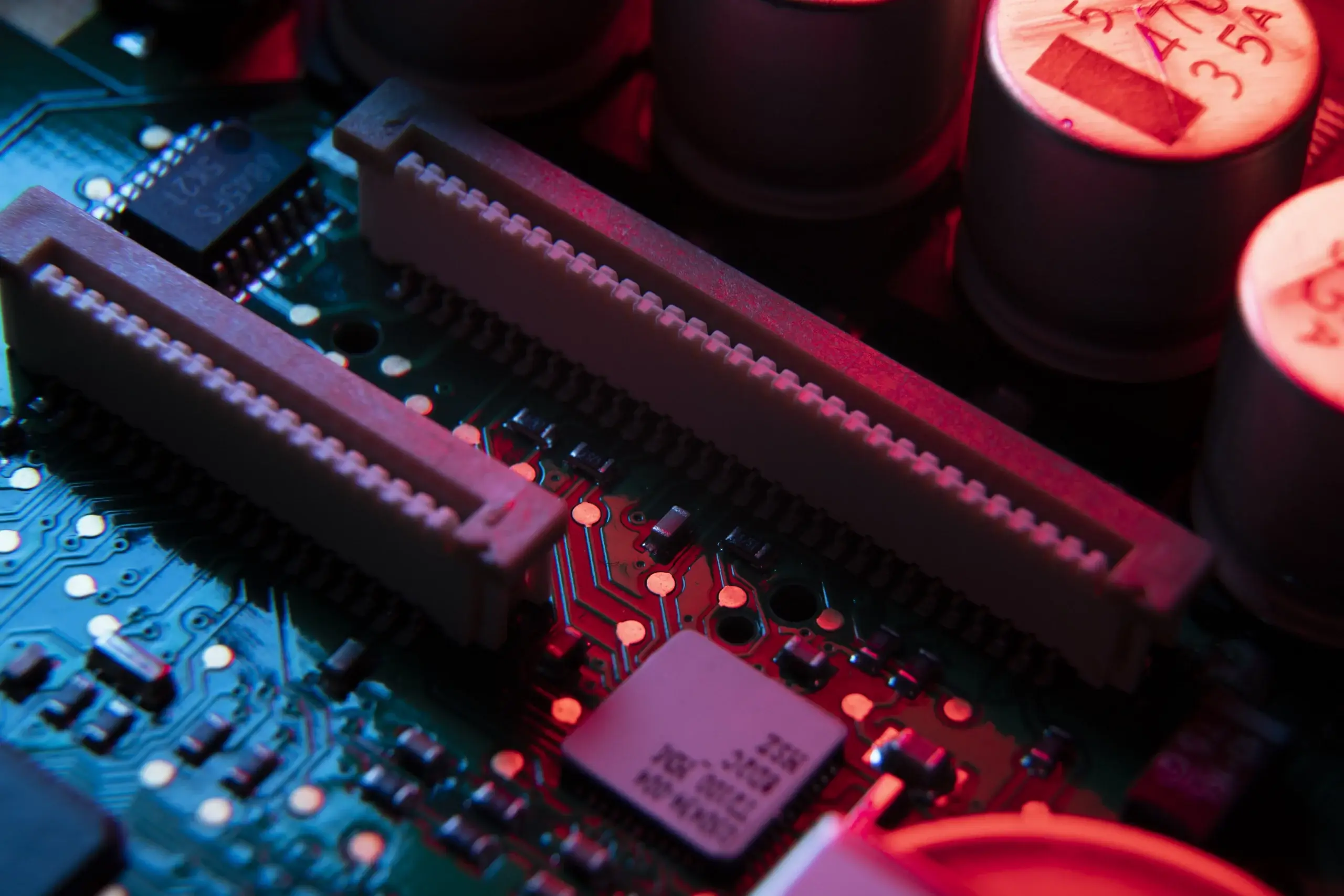
Pay your tuition in advance through self-payment or with the help of your employer.
Numerous employers provide financial assistance for coding programs, so it is advisable to inquire with your employer regarding tuition support.

Embedded engineers' roles are in high demand by many companies in the high-tech industry.
An Embedded developer programs systems directly on the hardware, following an Embedded Bare Board Application approach. This type of development is performed without an operating system and utilizes robust and established languages such as C and C++.
The integration of expertise from our Development Division in the Embedded field within the curriculum creates a unique training program. Since 2007, all students who completed their final projects have found employment at the end of the course.
The Embedded Bare-Board course consists of various topics that form the field. In this course, students will learn to program directly on the hardware, without an operating system, directly on the board (hence, Bare-Board).
We offer all the courses in the track to beginner programmers (engineering graduates / computer science graduates / exact sciences graduates / programmers with no experience). Experienced programmers can focus only on the topics that are relevant to them.
Towards the end of the Embedded Systems course:
During the Embedded Systems Bootcamp, the student will become familiar with the specialized tools and topics that confront embedded system designers/real-time programmers.
The curriculum includes all stages, starting from system initialization and Boot-Loader implementation, operating mode, and the use of peripherals such as UARTS, I2C, SPI Timers, PWM, Ethernet, writing Board Support Package (BSP), Device Drivers, using debugging tools, and planning and implementing Embedded Applications.
The syllabus was designed after numerous meetings with tech companies in the industry, emphasizing current requirements.
To prepare you for the industry and accelerate your integration as a real-time engineer in the development team of the company, all lectures and exercises are conducted on Evaluation Boards.
You will use development boards, such as ARM-based systems, that are popular in architecture design in the industry. Using these boards, you will learn planning stages, the required tools, and debugging as an integral part of the Embedded systems development process. Each student will receive a development kit (development board + SDK) for performing exercises and projects.
Benny Cohen
Real Time Group Founder and CEO

The Embedded Systems Certification program is made up of a number of courses (modules).
We know that each of us arrives with a different background and level of knowledge. In order to tailor the content to best fit your needs, you can choose the track that is most suitable for you:
Embedded Systems Certification studies at the college are currently conducted online.
This track includes all the courses in the program and is designed to make you an expert in the field.
This track includes only the courses and content specifically designed for the Embedded Systems Certification program.
This track allows you to select only the specific courses and content that you are interested in and wish to complete.
| Bareboard | |||||
|---|---|---|---|---|---|
| C | 90 academic hours |
|
|||
|
The C language course serves as a comprehensive and practical guide to software development. It provides the knowledge, techniques, and tools necessary to enable professional-level development of complex programs in the C language across various domains in the tech industry. | |||||
| ARM — Embedded systems | 90 academic hours |
|
|||
|
ARM (Advanced RISC Machines) is a type of architecture used in embedded systems and microprocessors. It is a family of instruction set architectures and processor cores that are designed for efficient and low-power processing in various applications, including embedded systems, mobile devices, microcontrollers, and more. Throughout this course, participants will cover techniques, development tools, work environment, debugging, typical issues in Embedded Systems development, and their solutions. | |||||
| C++ | 90 academic hours |
|
|||
|
This course will cover Object-Oriented Programming using the C++ language, emphasizing polymorphism, multiple inheritance, exceptions, and multithreading. | |||||
| Networking | 40 academic hours |
|
|||
|
Computer networking at the CCNA level: This course provides extensive knowledge in both theoretical and practical aspects of installation, maintenance, configuration, understanding of routers and switches, operation, network troubleshooting, and familiarity with computer networking protocols at the CCNA level. You will become familiar with the fundamental concepts and devices in networking, aspects and layers of LANs/WANs and the structure and functioning of architectures and protocols used in IP networks. | |||||
Requirements for eligibility for the certificate:
Upon successful completion of the Embedded Systems program, you will be awarded an Embedded Systems Certificate by RTG. This certificate will attest to your high level of knowledge and professionalism.
Pay your tuition in advance through self-payment or with the help of your employer.
Numerous employers provide financial assistance for coding programs, so it is advisable to inquire with your employer regarding tuition support.
Some students turn to personal loans to fund their coding education.
A diverse range of personal lending choices is at your disposal for careful consideration and assessment. Should you opt for a personal loan, be sure to select the one that aligns most effectively with your individual circumstances and financial goals.
Your eligibility for various government aid and scholarship programs may vary depending on your location.
As such, it is recommended that you explore the options and inquire about any scholarships or financial aid opportunities available.
After completing the Embedded Systems program you would be well-equipped to pursue various roles in the technology and engineering industry. Some potential job opportunities include:
1. Embedded Systems Engineer: Designing, developing, and testing software and hardware components of embedded systems, focusing on efficiency, performance, and functionality.
2. Firmware Engineer: Creating software that operates and controls electronic devices or systems, often working closely with hardware engineers to ensure proper integration.
3. IoT (Internet of Things) Developer: Developing applications and solutions for IoT devices, which involves connecting physical devices to the internet and enabling data exchange.
4. Device Driver Developer: Creating software that allows operating systems to interact with hardware devices, ensuring proper communication and functionality.
5. Real-Time Systems Engineer: Developing systems that require real-time responses, such as control systems, robotics, and industrial automation.
These roles span various industries, including automotive, aerospace, consumer electronics, healthcare, industrial automation, and more. Your skills in C, C++, ARM embedded systems, and networking will make you a valuable asset in the development of advanced and cutting-edge technologies.
The admission requirements for the Real Time Embedded Linux program are as follows:
1. Basic computer skills.
2. Some experience in C programming — an advantage, but not mandatory.
3. Background and/or experience in programming languages is an advantage.
4. Professional knowledge interview.
Currently, all classes in the Embedded Systems program take place online.
The Embedded Systems Development training program is one of the most practical and comprehensive pathway in the industry. A fundamental and essential requirement is to complete all course tasks, including exams, assignments, portfolio development, and more. This is necessary to accumulate practical experience in development, problem-solving, and to be ready to start your career immediately upon completing your studies.
The estimated total pay for an Entry Level Embedded Software Engineer is $126,263 per year in the United States area, with an average salary of $102,528 per year.
Source: glassdoor.com
